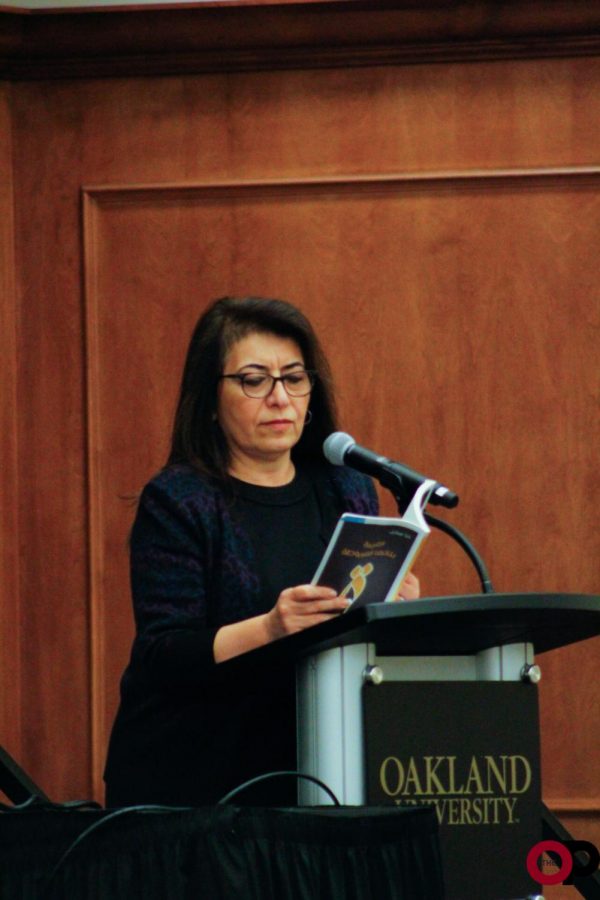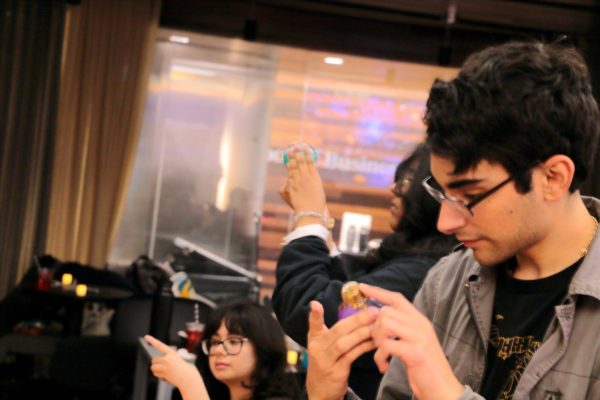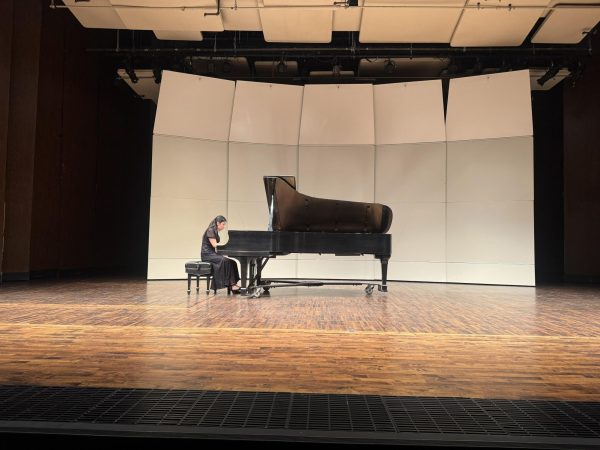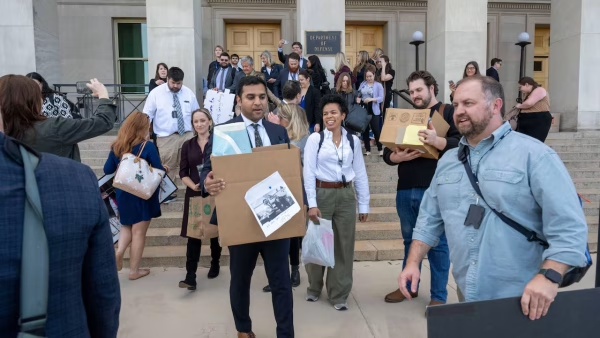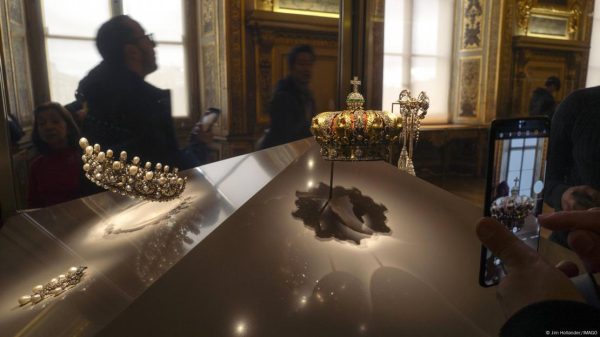Iraqi professor shares poetry of immigrant past
Special lecturer Dunya Mikhail reads her poetry during the annual Maurice Brown Memorial Poetry Reading in the Oakland Center on Tuesday, Oct. 22.
Oakland University’s Dunya Mikhail read a selection of her poetry at the annual Maurice Brown Memorial Poetry Reading on Oct. 22 in the Oakland Center. The reading was backed by a trio of musicians: Nashwan Pola on the oud, Victor Ghannam on the qanun and Edy Fadel on the riq.
“Her poems blaze with the intensity of the life she has led and with the brightness of her wit, her tenderness and her capacity — like any great poet — to lament and praise our human world,” English and creative writing professor Katie Hartsock said.
Mikhail was born in Baghdad, Iraq and worked as a journalist and translator for the Baghdad Observer after graduating from college. Facing censorship from Saddam Hussein’s regime, she moved to Jordan before moving to Detroit in 1995. Today, Mikhail is a special lecturer of Arabic at OU.
Her Iraqi identity is critical to Mikhail’s literary work. Her 2018 nonfiction book “The Beekeeper: Rescuing the Stolen Women of Iraq” tells the story of a beekeeper who saved countless Yazidi women from ISIS, while her poem “Plastic Death” is set in her hometown of Baghdad. “Plastic Death” focuses on children fighting a fake war with plastic weapons. It’s lighthearted enough at first, though Mikhail reminds readers of the stakes that come with growing up in the Iraqi capital.
“The years turn over and Baghdad recedes with our childhoods into exile,” Mikhail read. “From afar we see children who look like we did. They kill each other. Lying motionless on the floor. But none of them laugh or hold life and rise.”
“Plastic Death” was the only poem told in both English (Mikhail’s third language) and Arabic. Combined with the instrumental trio’s freestyle playing, the reading takes on an otherworldly quality, allowing the audience to happily imagine children playing war in the streets and vividly see those same children meeting a violently too-early demise.
While “Plastic Death” is where the reading began, war and violence is not the end-all-be-all of Mikhail’s literary relationship with Iraq. After living somewhere for 30 years, the relationship with that place is more than a simple “good” or “bad.” Such is the nature of the poem “Tablets.”
Fascinated by the tablets found at Sumerian ruins, Mikhail created over 100 poem bursts in Iraqi haiku. A sample of only about 20 passages were read at the event.
“No I am not bored of you/the moon too comes every day,” Mikhail read from “Tablets.” “The earth is so simple, you can explain it with a tear or a laugh. The earth is so complicated, you need a tear or a laugh to explain it.”
The trio of musicians intended to elevate Mikhail’s poetry and hoped to allow attendees to more easily visualize the scenes presented in her words.
Mikhail pulled poems from across her published collections. Her first collection, “The War Works Hard,” was one of the New York Public Library’s best books of 2005, while “Diary of a Wave Outside the Sea” was an Arab American Book Award winner in 2010. Mikhail’s nonfiction book “The Beekeeper” was featured by Publishers Weekly and PBS NewsHour.



